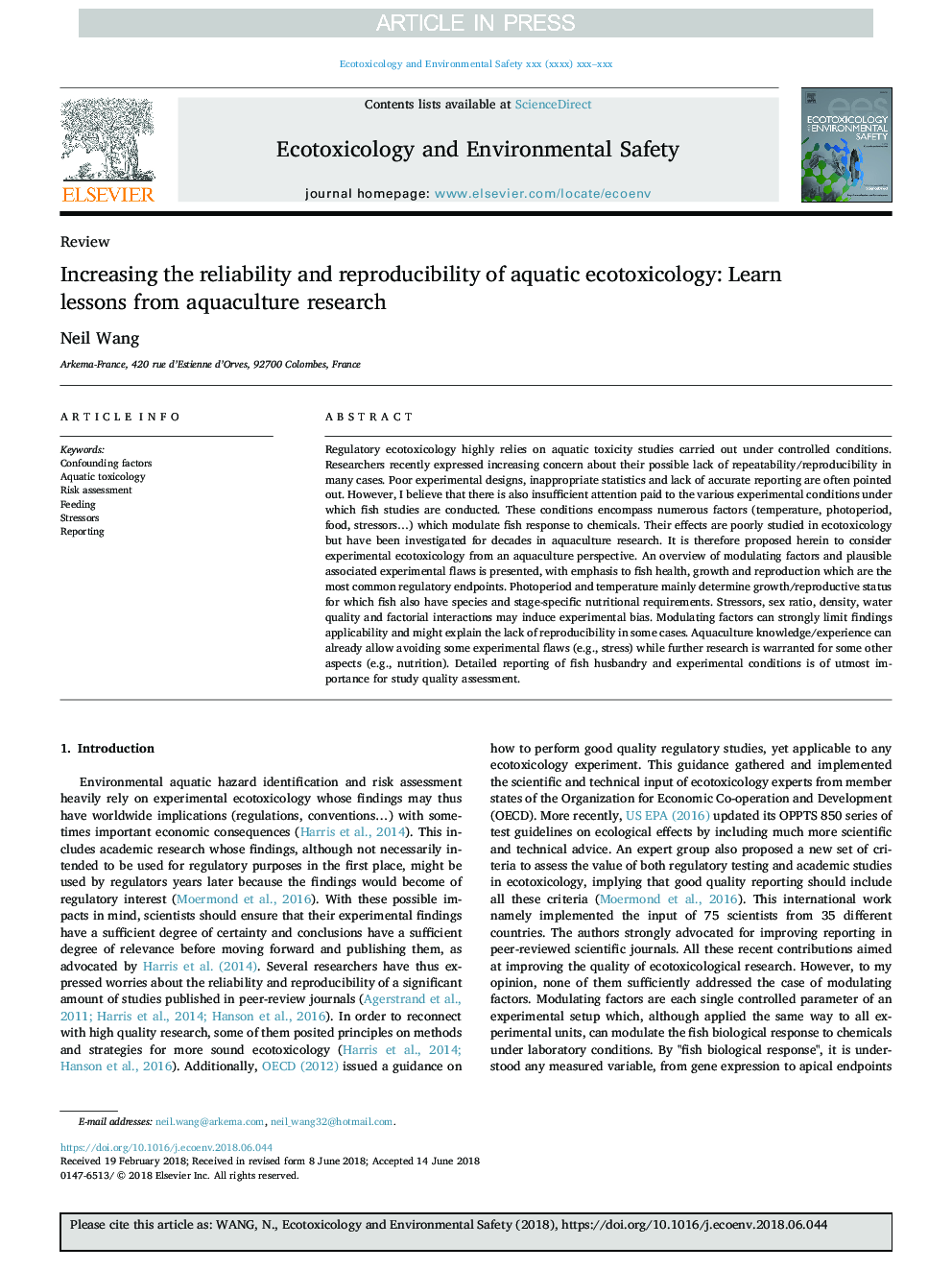| Article ID | Journal | Published Year | Pages | File Type |
|---|---|---|---|---|
| 8853941 | Ecotoxicology and Environmental Safety | 2018 | 10 Pages |
Abstract
Regulatory ecotoxicology highly relies on aquatic toxicity studies carried out under controlled conditions. Researchers recently expressed increasing concern about their possible lack of repeatability/reproducibility in many cases. Poor experimental designs, inappropriate statistics and lack of accurate reporting are often pointed out. However, I believe that there is also insufficient attention paid to the various experimental conditions under which fish studies are conducted. These conditions encompass numerous factors (temperature, photoperiod, food, stressorsâ¦) which modulate fish response to chemicals. Their effects are poorly studied in ecotoxicology but have been investigated for decades in aquaculture research. It is therefore proposed herein to consider experimental ecotoxicology from an aquaculture perspective. An overview of modulating factors and plausible associated experimental flaws is presented, with emphasis to fish health, growth and reproduction which are the most common regulatory endpoints. Photoperiod and temperature mainly determine growth/reproductive status for which fish also have species and stage-specific nutritional requirements. Stressors, sex ratio, density, water quality and factorial interactions may induce experimental bias. Modulating factors can strongly limit findings applicability and might explain the lack of reproducibility in some cases. Aquaculture knowledge/experience can already allow avoiding some experimental flaws (e.g., stress) while further research is warranted for some other aspects (e.g., nutrition). Detailed reporting of fish husbandry and experimental conditions is of utmost importance for study quality assessment.
Related Topics
Life Sciences
Environmental Science
Environmental Chemistry
Authors
Neil Wang,
